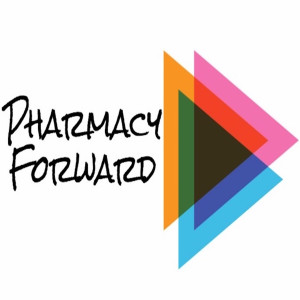
Julie Groppi, PharmD - National Program Manager, Clinical Pharmacy Practice Policy and Standards, Department of Veteran's Affairs and Todd Nesbit, PharmD, MBA - Director of Pharmacy Patient Care Services, the Johns Hopkins Hospital - discuss the credentialing and privileging of pharmacists.
Key Lessons
- Credentialing is the process of verifying someone education, training, certifications, and experience.
- Privileging is the process of determining an appropriate scope of practice based on the practitioner's credentials and granting authority to carry out specific patient care services/decisions.
- All health systems should credential the pharmacists they employ.
- Pharmacists can be privileged to initiate, modify, continue, or discontinue medication therapies as well as order tests and referrals as needed to achieve treatment goals.
- A pharmacist's privileges may be restricted to specific drugs and disease (e.g. collaboratory drug therapy management agreement) or may be service-specific (e.g. all patients enrolled in or assigned to a specific clinical service unit).
- The credentials necessary to be privileged to carry out advanced patient care services typically include residency training and board certification.
View and Download the Show Notes!
More Episodes
Professional Identity Formation (Part 3)
 2021-10-17
2021-10-17
 2021-10-17
2021-10-17
Professional Identity Formation (Part 2)
 2021-09-14
2021-09-14
 2021-09-14
2021-09-14
Professional Identity Formation (Part 1)
 2021-08-17
2021-08-17
 2021-08-17
2021-08-17
Finding a Meaningful Side Gig
 2021-05-11
2021-05-11
 2021-05-11
2021-05-11
Working Remotely - Making Remote Work, Work
 2021-04-13
2021-04-13
 2021-04-13
2021-04-13
Pharmacists and Point-of-Care Testing
 2021-03-16
2021-03-16
 2021-03-16
2021-03-16
Pharmacists and Population Health
 2021-02-18
2021-02-18
 2021-02-18
2021-02-18
Pharmacists and Public Health
 2021-01-27
2021-01-27
 2021-01-27
2021-01-27
012345678910111213141516171819
Create your
podcast in
minutes
- Full-featured podcast site
- Unlimited storage and bandwidth
- Comprehensive podcast stats
- Distribute to Apple Podcasts, Spotify, and more
- Make money with your podcast
It is Free
- Privacy Policy
- Cookie Policy
- Terms of Use
- Consent Preferences
- Copyright © 2015-2024 Podbean.com






